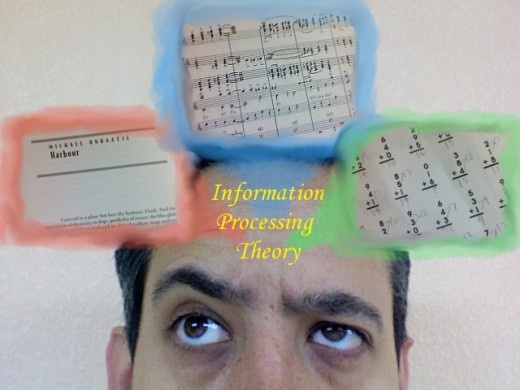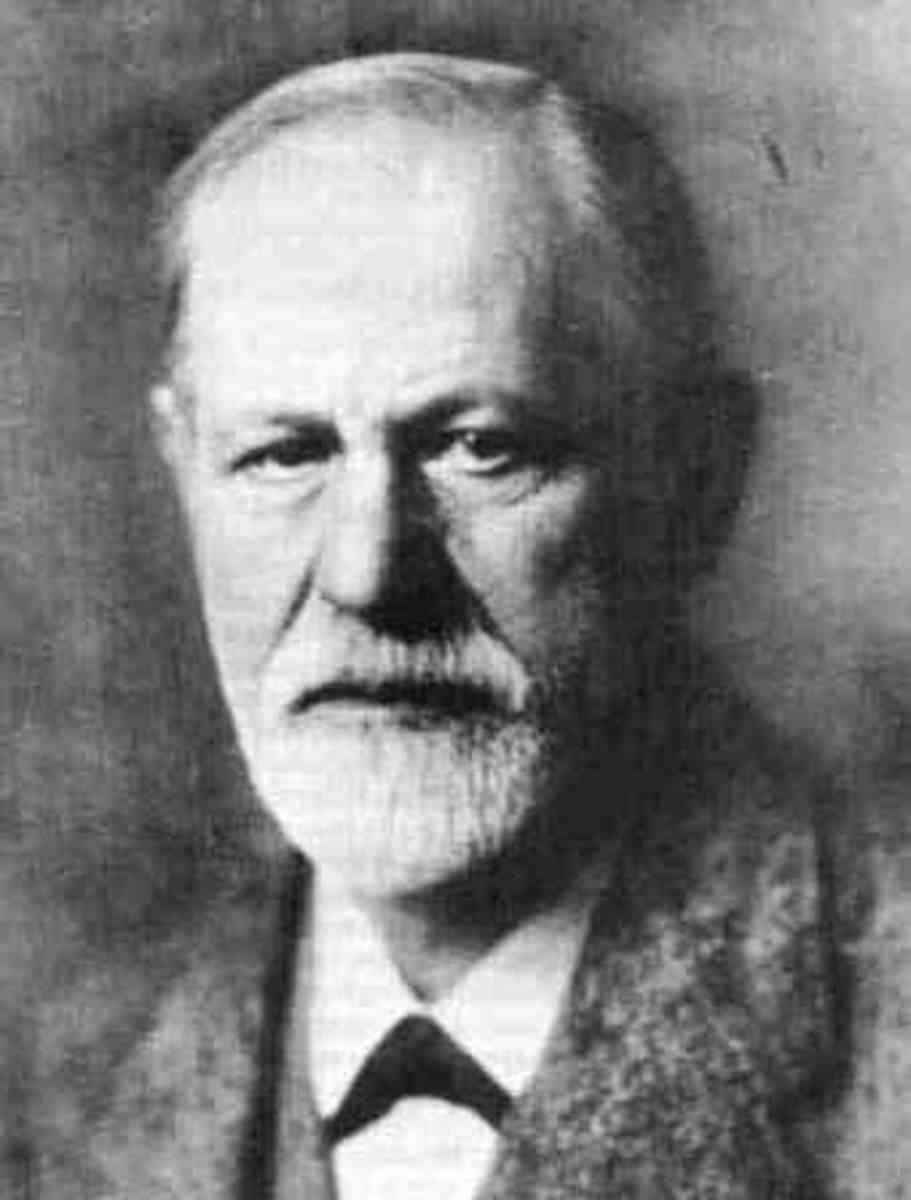On Information Processing Theory & Developmental Cognition
On Developmental Cognition & Information Processing Theory:
Note: This is part four of a series that examines the relationship between music and the brain by integrating scholarly work on the philosophy of music with research in the psychology of emotion and intelligence. Part four examines two alternative views of intelligence: Developmental Cognition and Information Processing Theory. All parts can be read independently, though they may make references to other parts. Please click here for an overall abstract and links to the rest of the parts in the series.
Contents
Introduction
An intelligence is the ability to solve problems, or to create products, that are valued in one or more cultural settings.[1]
-- Howard Gardner, Frames of Mind
For [John] Dewey . . . Humans, at least biologically intact ones, were intelligent in that they were question-asking, question-answering, questing, purposeful, impactful, proactive organisms constructing and reordering themselves and their worlds.[2]
-- Seymour Sarason, The Challenge of Art to Psychology
I view intelligence as mental activity directed toward purposive adaptation to and selection and shaping of real-world environments relevant to one’s life.[3]
-- Robert J. Sternberg, Beyond IQ: A triarchic theory of human intelligence
These few selected quotes illustrate that expanding the traditional conception of intelligence is a complicated matter that can lead in many different directions. Howard Gardner argues that solving problems and creating products in valued cultural settings (which he broadens far beyond the conventional logical-rational ones[4]) constitutes intelligent behavior. John Dewey, with his emphasis on the questioning and proactive nature of human intelligence, brings up the possible relationship of curiosity and motivation to intelligence. Robert Sternberg emphasizes the dialogue between the individual and his environmental surround as related to intelligence. Even as expansive as these three suggested approaches are, they amount to a mere fraction of all the views of intelligence that have been proposed.

To explore all of them in detail is beyond the scope of this work, but there are some important common characteristics among them to consider. Gardner addresses one of these points early on in Frames of Mind:
Most scholars within psychology, and nearly all scholars outside the field, are now convinced that the enthusiasm over intelligence tests has been excessive, and that there are numerous limitations in the instruments themselves and in the uses to which they can (and should) be put.[5]
What Gardner points to here is that while there are uses for intelligence tests, using them to define intelligence is certainly not one of them. This belief is becoming widely-accepted and accounts for many of the new attempts to expand the view of intelligence beyond the realms of IQ.
A number of other important characteristics of contemporary intelligence theories are excellently summarized by Jeanne Ellis Ormrod. She contends that many theorists deal with at least one, if not all, of six general elements of intelligence:[6]
- Intelligence involves numerous mental processes.
- Intelligence is related to one’s ability to learn quickly and easily.
- Intelligence involves the effective use of prior experience and background knowledge.
- Intelligence is adaptive (intelligent people will monitor and change their activity and behavior to facilitate dealing with new situations).
- Intelligence is expressed in numerous different domains.
- Intelligence is always culture-specific.
Ormrod’s points provide an excellent overview of the current focuses and considerations of intelligence research. Using all of these points to create a general conceptual framework for understanding intelligence, we can now turn to exploring the details of some more specific theories.

Developmental Cognition & Jean Piaget
No consideration of intelligence would be complete without a look at the work of Jean Piaget. Previous to Piaget, in line with the followers of the IQ conception of intelligence, the criterion for intelligence was one’s ability to arrive at the correct answers to posed problems, such as those that appear on the IQ test. Those who could arrive at more correct answers were more intelligent. Piaget, who was originally trained in the IQ conception of intelligence, began to take a different approach in the 1920s. Instead of taking such a marked interest in whether or not the students produced correct answers to problems, Piaget turned to considering the mental processes involved in how students think about the problems—their cognitive processing.[7]
Through his study, Piaget eventually came to feel that the way children think about their world changes as they grow older. He theoretically organized these changes into four stages of cognitive development: sensorimotor, pre-operational, concrete operational, and formal operational. The sensorimotor stage (birth to two) is dominated by perception as children touch, taste, hear, smell, and observe the world around them and, through that interaction, develop basic understandings of cause and effect. Children in this stage are generally not considered to be capable of mental representation. That is, they generally cannot reflect on objects or ideas that are not physically present. Developing this ability to represent objects and ideas mentally marks the child’s passage into the second stage, the preoperational stage (two to seven years of age).
The preoperational stage comes with its own problems, however. While the child can now think about different ideas and experiences without their physical presence, he is unable to see things from other people’s points of view, to distinguish clearly between imagination and reality, or to reason effectively about change over time.[8] Children enter the third stage, the concrete operational stage (seven to twelve years of age), as they overcome the problems of the second stage and become less egocentric, able to distinguish between imagination and reality, etc. In the third stage, the child can functionally reason in the world of objects and ideas. The child’s reasoning is still confined, however, by a limited power of abstraction. If the lines of reasoning begin to involve too many variables, stray too distantly from tangible objects and experiences, or in any way seem to contradict observed fact, then the child will have difficulty following the argument.[9]
Once the last stage, the formal operations stage is reached (twelve years old to adulthood), however, the individual overcomes these problems as well to become fully capable of complex, abstract reasoning.[10] Within the framework of these stages, Piaget held that the capabilities of a given child would apply to all his mental activities, regardless of what the subject matter or material might be.[11]
Within its scope, Piaget’s theory has come to be accepted as highly accurate. Its scope, however, is now felt to be far less broad than Piaget originally thought. Gardner puts the argument well: “In my view, Piaget has painted a brilliant portrait of development in one domain--that of logical-mathematical thought--but has erroneously assumed that it pertains to other areas . . .”[12] Thus, the argument that is held against the proponents of the traditional conception of intelligence, that it is too limited in its considerations, is also held up against the theories of Piaget. Piaget’s theories do illuminate the development of logical reasoning, but those developments do not necessarily spill over into other areas of interest or intelligence.[13]

Information Processing Theory
With the turn towards understanding the actual thought process of human intelligence, in many ways instigated by the theories of Piaget, psychologists began to look for specific elements of the thought process. One of the more prominent theoretical approaches to this is found in Information Processing Theory. Ormrod effectively describes Information Processing Theory in terms of four intellectual trends of development. Information-processing theorists propose that, over time, people develop more focused attention, more effective learning strategies, an increasing knowledge base and metacognition (the ability to analyze one’s own thought processes).[14] Specific research in Information Processing Theory takes place by investigating the processes of memory, perception, attention, association and learning.
‘Research in Information Processing Theory has developed a great deal of insight on the nature and function of these processes, however, in a similar manner to Piaget, the proponents of the theory claim it has a much broader application than some would be willing to accept. Gardner puts it this way:
In fact, in common with Piagetian psychology, nearly all the problems examined by information-processing psychologists prove to be of the logical-mathematical sort. The prototypical problems--solving logical theorems, carrying out geometric proofs, playing a game of chess--might well have been borrowed directly from Piaget’s archive of pivotal intellectual tasks.[15]
The conclusions about memory, perception, attention, association, and learning that information-processing theorists arrive at through their research are therefore drawn purely from a study of logical-mathematical processes. Gardner’s fundamental concern with this situation seems to be their attempt to search for cognitive universals that apply across the gamut of possible intellectual pursuits by looking at only one form of thought processing. This being the case, the conclusions of the information-processing theorists are only reasonably applied to that particular form of thinking.[16]
To its credit, the more general assumptions of the Information Processing Theory pointed out by Ormrod (that, over time, people develop more focused attention, more effective learning strategies, an increasing knowledge base and metacognition) do seem to have a wide applicability, although in different ways and within different performance contexts. It is only in the conceptualizations of the specific cognitive processes that the theory seems limited to logical-mathematical forms of thinking simply because problems of that sort have been the ones most heavily researched. There may soon, or already, be theorists looking into more specifically non-logical-mathematical problems with the information-processing approach in mind.[17]
End Notes:
[1] Gardner, Frames of Mind, p. x.
[2] Sarason,16.
[3] Sternberg, 45.
[4] Gardner, Frames of Mind, 99–127 and 170–327.
[5] Ibid., 16.
[6] Jeanne Ellis Ormrod, Educational Psychology: Developing Learners, 2nd ed. (Upper Saddle River, NJ: Prentice-Hall, Inc., 1998), 148.
[7] Gardner, Frames of Mind, 17–22.
[8] Taken together, Piaget’s sensorimotor and preoperational stages are roughly parallel to Gardner’s conception of the intuitive learner.
[9] The concrete operational child (stage three) is comparable to Gardner’s traditional learner. This child’s limitation to concrete kinds of thinking, as described by Piaget, is closely related to the literal-minded understandings discussed in Chapter I.
[10] The formal operational stage of Piaget’s theory corresponds to Gardner’s conception of the disciplinary learner.
[11] Summaries of Piaget’s theories can be found in Jeanne Ellis Ormrod, Educational Psychology, 46–53; Howard Gardner, Frames of Mind, 17–22; and Howard Gardner, Art Education and Human Development (Santa Monica, California: The Getty Center for Education in the Arts, 1990), 2–4.
[12] Gardner, Frames of Mind, 134.
[13] Gardner, Art Education, 2. While the specifics of Piaget’s theories are generally considered to have a limited applicability, much research has been done in applying his developmental approach to different areas of intellectual development. Noam Chomsky is perhaps the best known of these researchers with his work in the developmental cognition of language (Gardner, Unschooled Mind, 32–36), and Pflederer-Zimmerman, and well as Heinz Werner have done similar research in the area of music (Pflederer-Zimmerman, “Conservation and the Development of Musical Intelligence,” Journal of Research in Music Education 15 (1967) : 215–223; and Pflederer-Zimmerman, “The Responses of Children to Musical Tasks Embodying Piaget’s Principle of Conservation.” Journal of Research in Music Education 12 (1964) : 251–268; and H. Werner, Die Melodische Erfindung im Früher Kindesalter (Vienna: A Holder, 1917) cited in Gardner, Arts and Human Development, 192).
[14] Ormrod, 58–65.
[15] Gardner, Frames of Mind, 23.
[16] Ibid., 22–24.
[17] Ibid., 317.
Series Abstract
Important efforts in recent musical research have been devoted to exploring how music affects intellectual processing, the emotions and personality. Most of these efforts have been focused on exploring music’s effect on the neurology of the brain and its possible contributions to development in other non-musical domains such as language or mathematics. Much of this research is, by necessity, very specific and of a limited focus. A broader understanding of the positive results of music study can now be established, however, by synthesizing the theories of musical meaning provided by music philosophy and new psychological research on the nature of intelligence and emotion. This synthesis reveals that studying music has demonstrable holistic benefits on cognitive processing, emotional fluency and character development.

Links to other articles in the series:
Introduction:
Part I: On the Psychology of Intelligence
- On the Traditional View of Intelligence
- Emergent Problems with the Traditional View of Intelligence
- Alternative Views: Developmental Cognition & Information Processing Theory
- Alternative Views: Multiple Intelligences Theory
- Alternative Views: The Triarchic Theory of Intelligence, Distributed Intelligence & Emotional Intelligence
- Alternative Views: Windows of Opportunity for Change
- COMING SOON:
- Part II: On the Nature of Art








